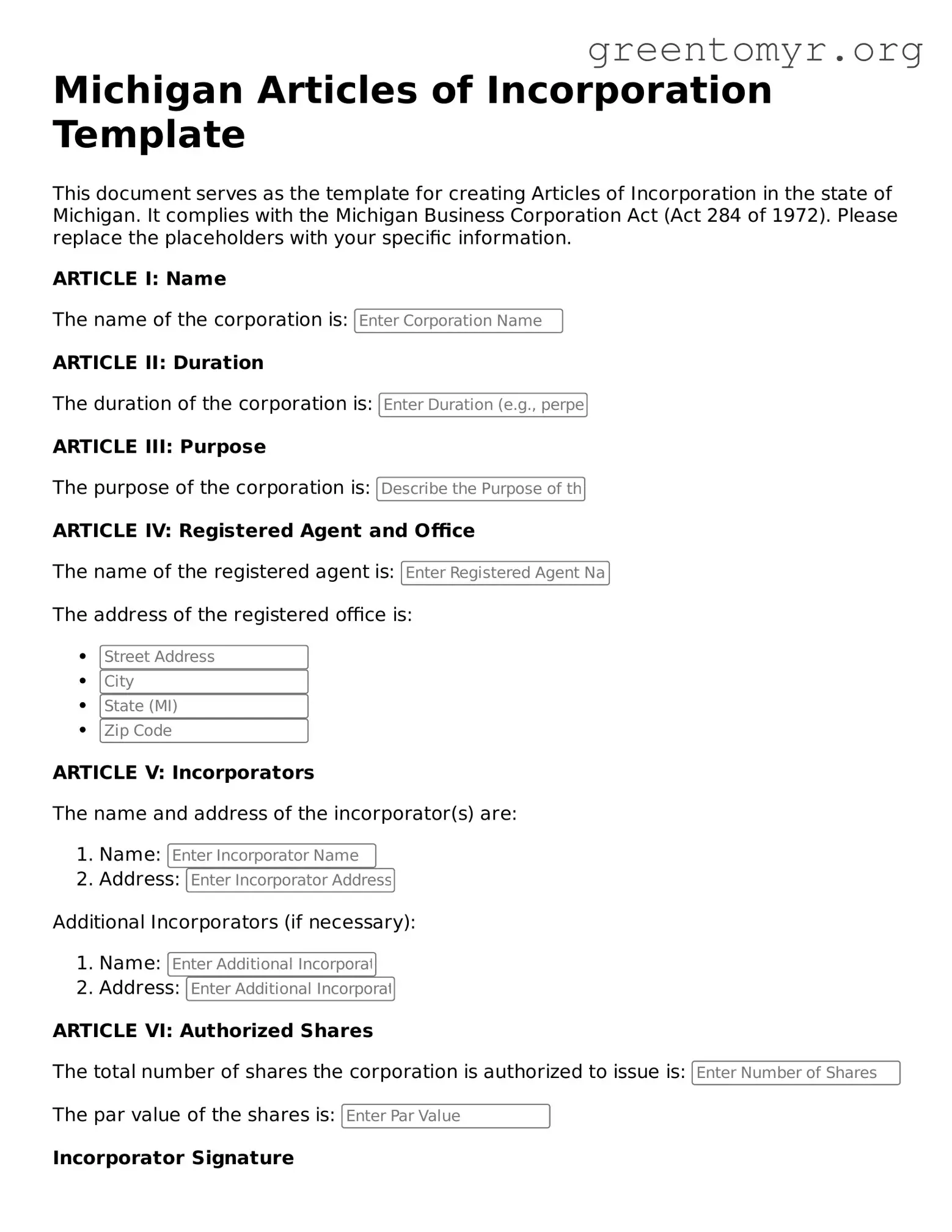Articles of Incorporation Form for the State of Michigan
The Michigan Articles of Incorporation form is a legal document required to officially establish a corporation in Michigan. This essential form outlines key information about the corporation, including its name, purpose, and any necessary provisions. To get started on forming your corporation, click the button below to fill out the necessary form.
